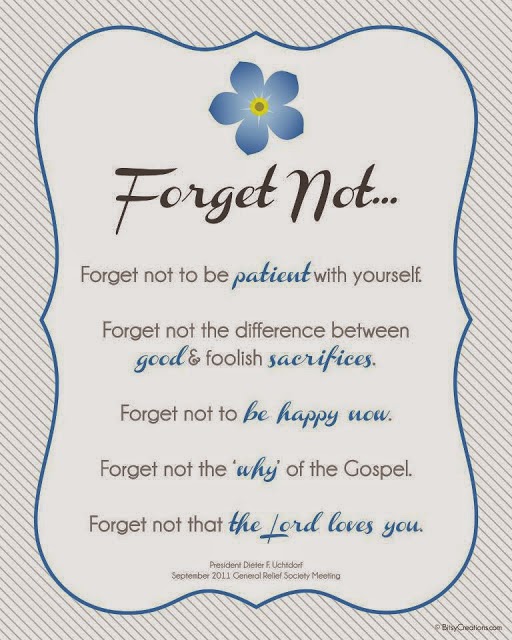"The Lord’s guidance and instruction are essential. He helped the faithful brother of Jared by solving one of his two challenges when He told him how to get fresh air into the barges that had been faithfully built (see Ether 2:20). But, pointedly, the Lord not only left temporarily unsolved the challenge of how to provide light, but He then made it clear that He, the Lord, would allow the buffetings and trials that necessitated its solving. He it would be who would send forth the winds, the rains, and the floods (see Ether 2:23–24).
Why would He do that? And why does He warn any of us to remove ourselves from a source of danger when He could simply stop the danger from happening? President Wilford Woodruff told the story of being spiritually warned to move the carriage that he, his wife, and child slept in, only to discover that a whirlwind shortly thereafter uprooted a large tree and dropped it exactly where the carriage had previously stood (see Teachings of Presidents of the Church: Wilford Woodruff [2004], 47).
In both of these instances, the weather could have been adjusted to eliminate the dangers. But here is the point—rather than solve the problem Himself, the Lord wants us to develop the faith that will help us rely upon Him in solving our problems and trust Him. Then we can feel His love more constantly, more powerfully, more clearly, and more personally. We become united with Him, and we can become like Him. For us to be like Him is His goal. In fact, it is His glory as well as His work (see Moses 1:39). (Drawing Closer to God, Elder Vinson Oct 2013 Ensign)
The key is -Temporarily! He will not leave them unsolved. He has all power to heal us. I believe that. All of us have things about ourselves that we seem to never be able to move beyond. I know I still struggle with the same things I struggled with as a kid. It seems the older I get, the more I realize I am still the same little girl with some of the very same struggles. This has left me feeling hopeless sometimes. Other times, though, when I see things through more faithful lenses I recognize that my inability to overcome my shyness in bigger group social situations and my struggle with my weight are both things, that cause me to turn to the Lord. They also keep me more compassionate of others and their struggles, and they have opened opportunities for me to be vulnerable with others. This vulnerability has in fact strenghtened my relationships with others. Although, I cannot compare my struggles with yours-I do believe the same is true -no matter what our trials are. Having faith that purpose can be found through trials is key to hope and without this hope there cannot ever be change.
The key is -Temporarily! He will not leave them unsolved. He has all power to heal us. I believe that. All of us have things about ourselves that we seem to never be able to move beyond. I know I still struggle with the same things I struggled with as a kid. It seems the older I get, the more I realize I am still the same little girl with some of the very same struggles. This has left me feeling hopeless sometimes. Other times, though, when I see things through more faithful lenses I recognize that my inability to overcome my shyness in bigger group social situations and my struggle with my weight are both things, that cause me to turn to the Lord. They also keep me more compassionate of others and their struggles, and they have opened opportunities for me to be vulnerable with others. This vulnerability has in fact strenghtened my relationships with others. Although, I cannot compare my struggles with yours-I do believe the same is true -no matter what our trials are. Having faith that purpose can be found through trials is key to hope and without this hope there cannot ever be change.







![“The gospel of Jesus Christ is not a checklist of things to do; rather, it can live in our hearts. [It] is not weight; it is wings. It carries us.” –Sister Jean A. Stevens (from her inspiring April 2014 general conference http://facebook.com/pages/General-Conference-of-The-Church-of-Jesus-Christ-of-Latter-day-Saints/223271487682878 message). Enjoy more about Jesus Christ http://facebook.com/pages/The-Lord-Jesus-Christ/173301249409767 and how His restored gospel can bless your daily life.](http://media-cache-ak0.pinimg.com/736x/ce/ef/db/ceefdbaf584e80d643c8b1f30f4e8aed.jpg)

